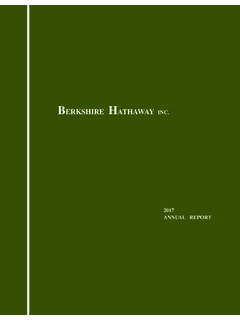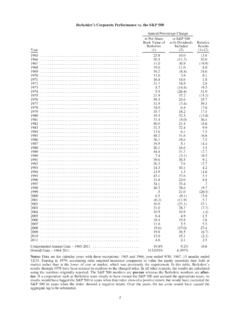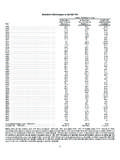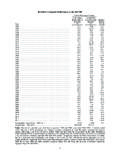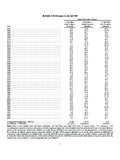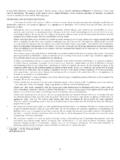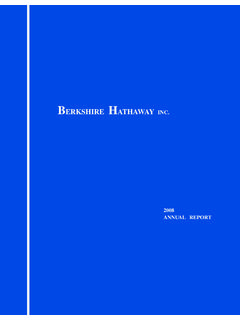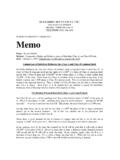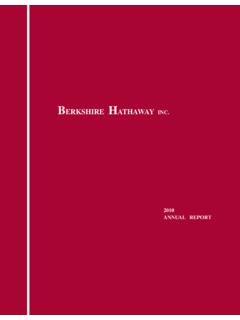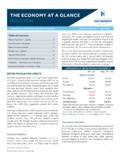Transcription of Berkshire’s Performance vs. the S&P 500
1 Berkshire's Performance vs. the S&P 500. Annual Percentage Change in Per-Share in Per-Share in S&P 500. Book Value of Market Value of with Dividends Year Berkshire Berkshire Included 1965 .. 1966 .. ( ) ( ). 1967 .. 1968 .. 1969 .. ( ). 1970 .. ( ) 1971 .. 1972 .. 1973 .. ( ) ( ). 1974 .. ( ) ( ). 1975 .. 1976 .. 1977 .. ( ). 1978 .. 1979 .. 1980 .. 1981 .. ( ). 1982 .. 1983 .. 1984 .. ( ) 1985 .. 1986 .. 1987 .. 1988 .. 1989 .. 1990 .. ( ) ( ). 1991 .. 1992 .. 1993 .. 1994 .. 1995 .. 1996 .. 1997 .. 1998 .. 1999 .. ( ) 2000 .. ( ). 2001 .. ( ) ( ). 2002 .. ( ) ( ). 2003 .. 2004 .. 2005 .. 2006 .. 2007 .. 2008 .. ( ) ( ) ( ). 2009 .. 2010.
2 2011 .. ( ) 2012 .. 2013 .. 2014 .. 2015 .. ( ) 2016 .. Compounded Annual Gain 1965-2016 .. Overall Gain 1964-2016 .. 884,319% 1,972,595% 12,717%. Notes: Data are for calendar years with these exceptions: 1965 and 1966, year ended 9/30; 1967, 15 months ended 12/31. Starting in 1979, accounting rules required insurance companies to value the equity securities they hold at market rather than at the lower of cost or market, which was previously the requirement. In this table, Berkshire's results through 1978 have been restated to conform to the changed rules. In all other respects, the results are calculated using the numbers originally reported.
3 The S&P 500 numbers are pre-tax whereas the Berkshire numbers are after-tax. If a corporation such as Berkshire were simply to have owned the S&P 500 and accrued the appropriate taxes, its results would have lagged the S&P 500 in years when that index showed a positive return, but would have exceeded the S&P 500 in years when the index showed a negative return. Over the years, the tax costs would have caused the aggregate lag to be substantial. 2. BERKSHIRE HATHAWAY INC. To the Shareholders of Berkshire Hathaway Inc.: Berkshire's gain in net worth during 2016 was $ billion, which increased the per-share book value of both our Class A and Class B stock by Over the last 52 years (that is, since present management took over), per-share book value has grown from $19 to $172,108, a rate of 19% compounded annually.
4 *. During the first half of those years, Berkshire's net worth was roughly equal to the number that really counts: the intrinsic value of the business. The similarity of the two figures existed then because most of our resources were deployed in marketable securities that were regularly revalued to their quoted prices (less the tax that would be incurred if they were to be sold). In Wall Street parlance, our balance sheet was then in very large part marked to market.. By the early 1990s, however, our focus was changing to the outright ownership of businesses, a shift that materially diminished the relevance of balance sheet figures. That disconnect occurred because the accounting rules (commonly referred to as GAAP ) that apply to companies we control differ in important ways from those used to value marketable securities.
5 Specifically, the accounting for businesses we own requires that the carrying value of losers be written down when their failures become apparent. Winners, conversely, are never revalued upwards. We've experienced both outcomes: As is the case in marriage, business acquisitions often deliver surprises after the I do's. I've made some dumb purchases, paying far too much for the economic goodwill of companies we acquired. That later led to goodwill write-offs and to consequent reductions in Berkshire's book value. We've also had some winners among the businesses we've purchased a few of the winners very big . but have not written those up by a penny.
6 We have no quarrel with the asymmetrical accounting that applies here. But, over time, it necessarily widens the gap between Berkshire's intrinsic value and its book value. Today, the large and growing . unrecorded gains at our winners produce an intrinsic value for Berkshire's shares that far exceeds their book value. The overage is truly huge in our property/casualty insurance business and significant also in many other operations. Over time, stock prices gravitate toward intrinsic value. That's what has happened at Berkshire, a fact explaining why the company's 52-year market-price gain shown on the facing page materially exceeds its book-value gain.
7 * All per-share figures used in this report apply to Berkshire's A shares. Figures for the B shares are 1/1500th of those shown for A. 3. What We Hope to Accomplish Charlie Munger, Berkshire's Vice Chairman and my partner, and I expect Berkshire's normalized earning power per share to increase every year. Actual earnings, of course, will sometimes decline because of periodic weakness in the economy. In addition, insurance mega-catastrophes or other industry-specific events may occasionally reduce earnings at Berkshire, even when most American businesses are doing well. It's our job, though, to over time deliver significant growth, bumpy or not.
8 After all, as stewards of your capital, Berkshire directors have opted to retain all earnings. Indeed, in both 2015 and 2016 Berkshire ranked first among American businesses in the dollar volume of earnings retained, in each year reinvesting many billions of dollars more than did the runner-up. Those reinvested dollars must earn their keep. Some years, the gains in underlying earning power we achieve will be minor; very occasionally, the cash register will ring loud. Charlie and I have no magic plan to add earnings except to dream big and to be prepared mentally and financially to act fast when opportunities present themselves. Every decade or so, dark clouds will fill the economic skies, and they will briefly rain gold.
9 When downpours of that sort occur, it's imperative that we rush outdoors carrying washtubs, not teaspoons. And that we will do. I earlier described our gradual shift from a company obtaining most of its gains from investment activities to one that grows in value by owning businesses. Launching that transition, we took baby steps . making small acquisitions whose impact on Berkshire's profits was dwarfed by our gains from marketable securities. Despite that cautious approach, I made one particularly egregious error, acquiring Dexter Shoe for $434 million in 1993. Dexter's value promptly went to zero. The story gets worse: I used stock for the purchase, giving the sellers 25,203 shares of Berkshire that at yearend 2016 were worth more than $6 billion.
10 That wreck was followed by three key happenings two positive, one negative that set us firmly on our present course. At the beginning of 1996, we acquired the half of GEICO we didn't already own, a cash transaction that changed our holding from a portfolio investment into a wholly-owned operating business. GEICO, with its almost unlimited potential, quickly became the centerpiece around which we built what I believe is now the world's premier property/casualty business. Unfortunately, I followed the GEICO purchase by foolishly using Berkshire stock a boatload of stock to buy General Reinsurance in late 1998. After some early problems, General Re has become a fine insurance operation that we prize.

